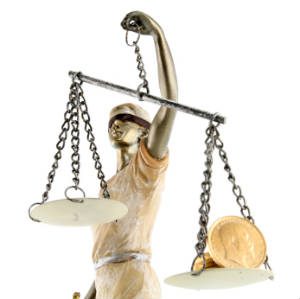The Arraignment
 Arraignment Hearing Explained
Arraignment Hearing Explained
The Arraignment on a Criminal Complaint is the defendant’s first appearance in front of a judge. In cases involving only Misdemeanor Offenses an attorney can appear for you without you physically being present. Felony offenses, however, always require the presence of the defendant. If the defendant is in custody, the San Diego Sheriff will produce him or her for the hearing.
Purpose of Arraignment
The purpose of an Arraignment, according to Penal Code § 988, is for reading the “accusatory pleading to the defendant … and asking the defendant whether the defendant pleads guilty or not guilty to the accusatory pleading.” The purpose of the arraignment is to inform the defendant of the charges against him/her, to inform the defendant of his/her constitutional rights, and for the defendant to enter a plea to the charges of Guilty or Not Guilty.
Setting Future Court Dates
The arraignment also functions as a calendaring hearing for future court dates. Future court dates include: trial (misdemeanor cases) readiness conferences, preliminary hearing and a bail review hearing.
Bail
The arraignment is also the hearing where the first decision on bail is made. Your attorney is going to have to make an argument for your custody status during the pendency of the case. If is important that you have an attorney who is skilled at persuading judges to lower bail or release you on your own recognizance.
Custody Status
At the arraignment, a judge has a lot of options as to a defendant’s custody status. The judge can do any of the following.
- Remand the Defendant Without Bail – This is when the judge says no amount of bail will due. Defendant is to remain in custody while the case goes through the system
- Set Bail – This is when the judge sets an amount of money that will be held in trust securing that the defendant will show up for future dates on his or her case. If bail is set, the defendant will be released if he or she posts cash bail or purchases a bail bond.
- Own Recognizance Release (“OR” Release) – This is where the judge allows the defendant to get out of custody without having to post bail.
Juvenile cases differ substantially. If your case is a juvenile case, call us now and we can discuss the custody issues for you or your child.
When & Where is The Arraignment?
One of the first issues to resolve is when and where your arraignment is located. Most of the time the paperwork you receive from the Sheriff or your Bail Agent includes the court address, department and time of the arraignment.
It is imperative that you retain the documents when you are released from custody. A failure to appear at the arraignment will result in the court issuing an immediate bench warrant and the prosecution filing additional charges for the failure to appear.
If you do not know when your court hearing is scheduled, visit the nearest court and speak with a clerk. With your date of birth and name, they can find when your hearing is scheduled.
Schedule a Free Case Evaluation …
If you or a loved one are scheduled for a San Diego Arraignment, contact one of our San Diego Criminal Attorneys for a Free and Confidential discussion or your legal issue by calling 619-708-2073 or emailing us at attorneys@hullingerfirm.com..
Request A Free Consultation

Scott Hullinger, Esq.
Criminal and Civil Attorney